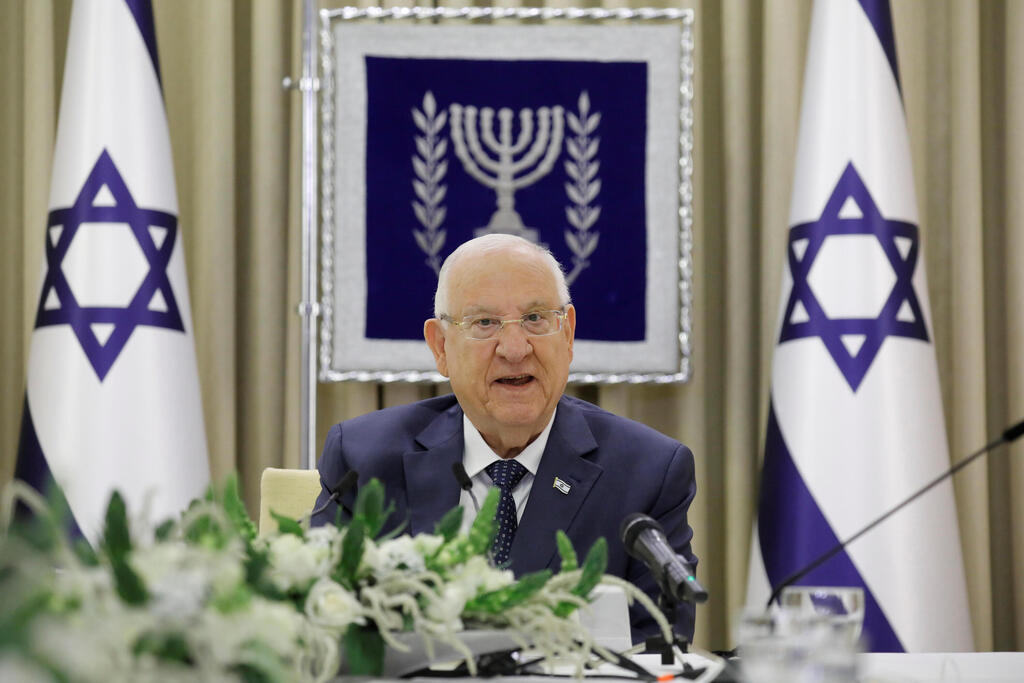President Reuven Rivlin expressed pessimism Monday that any party leader could muster enough support for him to task them with forming the next government following the March 23 elections, given the divided state of Israeli politics.
"I do not see a way in which a government can be established," Rivlin told representatives of Yesh Atid, the opposition party that pulled in the second-largest haul of seats in last month's vote.
3 View gallery


President Reuven Rivlin prepares to hear recommendations for prime minister at his official residence in Jerusalem on Monday
(Photo: Reuters)
"The people of Israel should be very concerned that we may be dragged into a fifth election" since April 2019, said the president.
Vowing transparency and respect for the will of the voters, Rivlin began consultations Monday morning with representatives from each political party to hear their recommendations for the next prime minister, hoping that one leader would secure the 61-MK support needed to form a stable government.
Almost simultaneously, Prime Minister Benjamin Netanyahu was appearing in court across town as the evidentiary stage of his corruption trial got underway.
Meeting with representatives of Netanyahu's Likud party, Rivlin alluded to the trial, saying that "there may be a moral component to choosing a prime minister that I do not know whether a president or the Supreme Court should address."
Under Israeli law, a prime minister can serve despite being indicted on criminal charges while other lawmakers are not afforded the same right. Netanyahu has refused to resign, claiming the charges were the result of a "witch hunt" by the media and the judicial establishment.
3 View gallery


Israelis voting in the March 23 elections at polling stations across the country
(Photo: Kobi Kuankas, AFP)
Likud party won 30 Knesset seats, the largest number by far, with Yesh Atid coming in second with 17 seats.
Netanyahu expects 52 Knesset members to recommend him to the president including the ultra-Orthodox parties and the extreme-right Religious Zionist party, but will still fall short of the 61-MK majority needed to form a coalition.
While at least 57 members of Knesset have stated that they would not join a Netanyahu-led coalition, Yesh Atid leader Yair Lapid has also fallen short of the magic number.
Speaking Monday morning as he prepared to embark on the allotted three days of consultations, Rivlin reiterated his belief that the next government should reflect the will of the people.
3 View gallery


President Reuven Rivlin meeting with Yesh Atid officials in Jerusalem on Monday
(Photo: Reuters)
"The aim of the process that the law sets out is to bring about the formation of a government that will have the confidence of the new Knesset that has been elected by the people," Rivlin said.
"This is how all previous Israeli presidents have acted, this is how I acted in previous elections and this is how I will act now," the president said.
"During the day, the elected representatives will come to the President's Residence, the house of the Israeli people, and will make their voices – your voices – heard.
"This round of consultations, just as the previous rounds since I took office, will be transparent and open to the public as a reflection of our commitment to be as visible as possible to Israeli citizens," he said.

